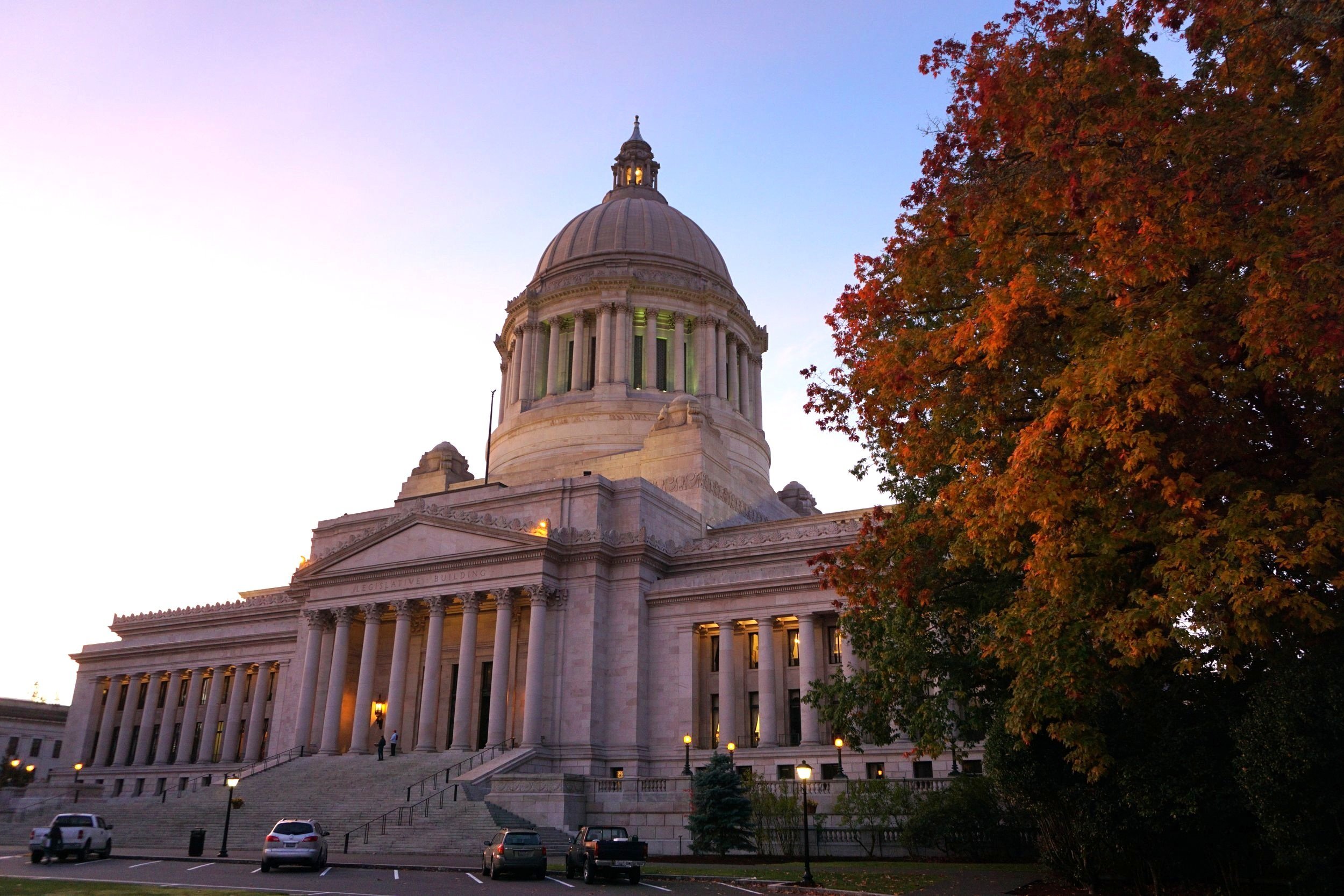
Your Right to Know Report
Perspectives | 12
The following essays represent the analysis and viewpoints of their authors.
Finding 4: Open Government Training is Inadequate and Often Wrong
At the State AG, It’s Advice for Me but Not for Thee
The state Office of the Attorney General plays a pivotal role in training and advising government officials on the Public Records Act. But institutional incentives give the agency little reason to advise requesters or provide training that interprets the PRA in ways that favor the public. The result is a baseline understanding of records laws among public employees that tilts not toward disclosure, but toward government self-preservation.
If you google the phrase “fox guarding the hen house,” you will find a definition that I really like: “a person likely to exploit the information or resources that they have been charged to protect.”
In Washington state, that is exactly the situation for our public records. The Office of the Attorney General (OAG) has been given a huge role in implementing the transparency goals of the Public Records Act (PRA), but, like the fox, the agency has many reasons to use that power in its own interests. The OAG, as an entity governed by its own PRA interpretations and charged with defending state agencies when accused of PRA violations, has no incentive to guard an agency’s obligation to the public from bureaucratic decay.
Transparency, like all big, organizational goals, is a constant commitment and requires active protection. To that end, in 2013 the Washington state Legislature passed the Open Government Trainings Act. (1) This law requires state and local elected officials, as well as all agency-designated public records officers (collectively “agency responders”), to undergo training on the legal requirements governing record retention (2) and record production. (3)
But not all training leads to success. Training for a marathon won’t help you win a chess match. Training with the right goal in mind is key.
When it comes to the state PRA, the right goal is government transparency. The legislation was a good idea, but it made the content of the training depend on the Attorney General’s model rules for the PRA. This placed the state OAG at the center of PRA training and made other agencies think that relying on the OAG was sufficient for compliance. Agency responders receive training, not from requesters or transparency advocates, but from other government insiders. This means that most training is done with the wrong goal in mind: self-preservation. This flaw led to a predictable outcome: The training isn’t good enough.

An out-of-date manual
The OAG houses mountains of information on the PRA. This includes some items that are out of date and some that are contrary to the PRA’s goal. For example, the OAG puts forward an Open Government Resource Manual that is now seven years out of date, therefore missing important updates like the legislative passage of ESHB 1594 (PRA training, consultation, and grants), ESHB 1692 (limiting disclosure of employee information where the employee has been the victim of harassment), or HB 1595 (creating a method for assessing charges for PRA document access). I
For an example of the training materials that contradict the PRA, see “Many Agencies Fail To Adequately Organize Their Records” on page 42.
The OAG has also consistently used its rule-making authority to advocate for the most agency-friendly possible reading of legislative requirements, rejecting the interpretations put forward by newspapers, WashCOG and other transparency advocates.
For example, in WAC 44-14-03006, the OAG said that “An agency may prescribe the means of requests in its rules.” And it cites RCW 42.56.040, part of the PRA, for support. That law includes many agency duties, including the duty to publish its rules of procedure for submitting PRA requests. But the PRA does not call for agency rules to limit the way requests are made, only to facilitate a way requests can be made. The PRA’s only requirement for requests to be valid is that an agency receive “fair notice” that a public records request was made, a much broader and more versatile standard than allowing agencies to make one, prescribed proper path for requests.
WashCOG commented on this rule when it was proposed, explaining the legal problems with the sentence. The OAG rejected WashCOG’s comment, claiming that the need to designate one person responsible for requests was too great to allow the PRA to be interpreted so broadly. (4) This is just one example of many. Check out the Concise Explanatory Statement for WAC ch. 44-14 to see more examples of areas where the OAG rejected transparency in favor of ease for the government. Finally, the OAG offers a PRA assistance program to local governments.
Limited support for requesters
Unlike the copious, self-serving guidance the OAG provides to other government actors, the support for requesters is minimal and geared toward limiting the government’s exposure to liability.
The Attorney General has an obligation to assist requesters via the Open Government Ombuds position, established in 2005. The role, which started with the best intentions, has been on a rocky road with some high points and low points, though the trend is not good.
There have been four ombuds in the OAG: Greg Overstreet, Tim Ford, and Nancy Krier, followed by a two-year vacancy, and now Morgan Damerow. For commentary on that progression by those who know it best, listen to this podcast featuring my interview with Overstreet. It traces the history and decay of the office from Overstreet’s time, when the office would publicly push agencies to disclose records, to the current point, which finds the OAG itself one of the hardest agencies from which to get records.
Damerow does not come from the world of requester advocacy, but has led the Local Government help line for many years. In one training, he made his opinion of the PRA clear:
Unreasonable/angry parents are birds of a feather. They flock together. They research. They blog. More and more they are understanding the power they can wield and thus misery they can cause under the public records act by pushing just a few buttons on their keyboards.
Damerow’s background and actions in office make plain that his bias is toward the government agencies, not the public, even now that his role is public records ombuds. In litigation, he has represented state agencies that sought to avoid disclosure and liability by encouraging third parties to sue several times. Requesters are entitled to a refund of their attorneys’ fees when the state refuses to provide records. But when the state essentially invites a third party to oppose disclosure, no refund is available. This tactic is certainly in the best interest of the agencies that would otherwise risk liability, but it is not in the best interests of transparency or equity.
It is no surprise then that, under Damerow, the ombuds program seems to have atrophied to a point of uselessness. Occasionally it ignores help requests altogether, including a request by a Lewis County resident who sought advice on an unresponsive local official and several others. In contrast, I requested all records the OAG had on the Local Government Public Records Consultation Program, and though production is ongoing in the six batches I have received, I have not seen a single instance of a government actor asking for help and being ignored.
When the ombuds does answer, the answers are rarely satisfactory. In some cases, the ombuds claims that since litigation is ongoing, it would be “inappropriate” to assist the requester, citing no support for that proposition. He has claimed attorney-client privilege on communication with local agencies in his ombuds role, even though such a relationship would be a conflict of interest and even though local agencies cannot be represented by the Attorney General’s office.

Although the OAG is itself governed by the PRA, it occupies a central role in defining what PRA compliance looks like and training others to respond properly. Regardless of any personal strength of character and inclination toward transparency that individuals in the OAG may bring, the incentives to let the PRA decay are strong for the office as an institution. It is foolish to trust an agency that has to live with the consequences of a strong PRA to decide what the PRA requires. Like letting a fox guard a hen house, or a toddler write the chore chart, the incentives are just too strong to foist the burden onto someone else. And that is exactly what the OAG is doing.
Hannah Sells Marcley is a government accountability attorney based in Northern Virginia. The former Washington state resident is a WashCOG board member and belongs to the Virginia Coalition for Open Government and the National Freedom of Information Coalition. She remains a lifelong fan of Washington state’s unique, quirky and wonderful style.
- 2013 Wa. SB 5964
- RCW 40.14
- RCW 42.56
- See Office of the Attorney General Concise Explanatory Statement, March 31, 2020.
